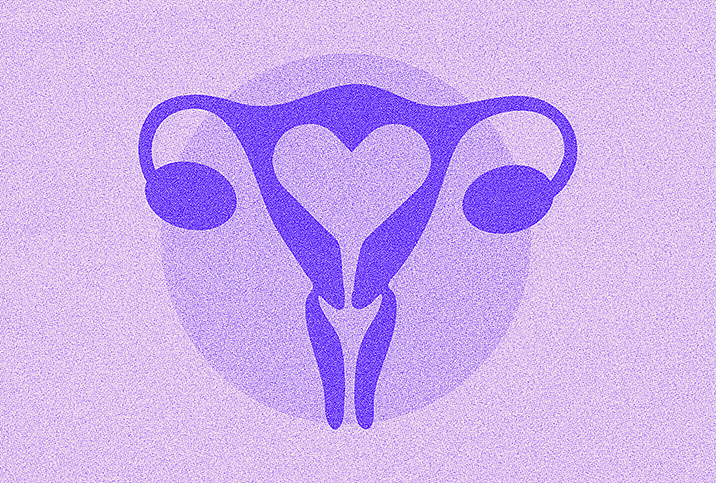Extra Sleep on the Weekend May Reduce the Risk of Heart Disease

Key Points
- Sleep deprivation is linked to an increased risk of several serious health problems, including cardiac diseases.
- A 2024 study suggests people who are sleep-deprived during the week but sleep more on the weekends have a lower risk of heart problems than those who don't make up for lost shuteye.
- Research suggests that consistent healthy sleep patterns and getting enough every night are essential for overall health.
Prioritizing sleep can be tough when it feels like there aren't enough hours in the day, but doing so is essential for heart health and overall well-being.
The good news is that if you can't get enough sleep during the week, a little extra shut-eye on the weekend may help, according to a 2024 study.
Can you make up for lost sleep over the weekend?
More than a third of Americans report racking up "sleep debt," according to the National Council on Aging (NCOA).
Sleep debt is the difference between the amount of sleep you need—between seven to nine hours for most people—and the amount you get, according to the National Institutes of Health (NIH).
- More than half of Americans admitted they need more sleep, according to a 2024 report.
- Almost 40 percent of adults report unintentionally falling asleep in the daytime at least once a month, suggested a 2022 report.
Consistently getting inadequate sleep could raise your risk of several health issues. These include:
- Obesity
- Stroke
- Cancer
- Type 2 diabetes
- Dementia
- Heart disease
Not getting enough sleep affects your mental health, too.
It can take days to recover from a single sleepless night, and catching up on the weekend won't offset all of your sleep debt, according to a review by the National Sleep Foundation.
For example, people who don't sleep enough during the week tend to weigh more and have less insulin sensitivity than those who do, no matter how much they sleep in on Saturdays and Sundays.
However, there may be some benefits for extra weekend sleep—at least for your heart.
Does getting extra sleep on the weekend help your heart?
Researchers found people who slept the most on the weekend were significantly less likely to develop heart problems—such as ischemic heart disease (IHD), heart failure (HF), atrial fibrillation (AF) and stroke, according to a preliminary report presented at the European Society of Cardiology Congress in August 2024.
The study involved data from 90,903 people involved in the UK Biobank project who had provided thorough health reports, including genetic and medical information and self-reported sleep hours.
About one in five participants were considered sleep-deprived as they got less than seven hours a night.
The researchers divided the participants into four groups based on how much "compensated sleep" they got—how much of their sleep debt they made up for on weekends. Then, the researchers combed through medical records and death registries to evaluate patients' heart health several years later.
Recommended
- It's 2024 and We're Still Living With COVID-19: New vaccines battle with new variants and, yes, you still need to be vaxed for COVID-19.
- Gray Matters: The Basics of Multiple Sclerosis: In the first of this four-part series, learn how to recognize the signs and symptoms of MS.
- Inherited Risk: What to Know About the BRCA Gene: If you have a mutation passed down by a parent, you may have a higher chance of getting cancer.
The sleep-deprived participants who got the most compensated sleep–-up to 16 hours—were 19 percent less likely to have cardiac diseases than those who compensated very little. Participants' sex didn't appear to have an effect as men and women benefited from makeup sleep equally.
Although the news is promising, the study had several limitations, such as focusing exclusively on the British population and using self-reported sleep data. And although researchers accounted for genetic risk factors for heart disease—finding that sleep-ins benefited people with heightened risk—it's unclear what other factors may have affected the results.
Hectic schedules, stress, diet, lack of exercise and poor sleep hygiene—as well as health issues such as chronic pain, depression, restless legs syndrome (RLS) and sleep apnea—are common reasons why people don't get enough sleep.
If you frequently grapple with sleep disruption or have trouble falling asleep due to a health condition, it's important to talk to your doctor.
Lifestyle changes, such as eating dinner earlier, sticking to a consistent sleep schedule and exercising daily, may help, too. You might also consider sleeping separately if your partner is keeping you up.
What are other ways to improve your heart health now?
Besides getting more quality sleep, the U.S. Office of Disease Prevention and Health Promotion recommends the following to improve heart health:
- Achieving or maintaining a healthy weight
- Eating a balanced diet
- Quitting smoking and avoiding secondhand smoke
- Controlling your cholesterol, blood sugar and blood pressure
- Managing stress
- Drinking alcohol in moderation, if at all
- Exercising regularly
In terms of diet, ample research suggests that the Mediterranean diet reduces the risk of heart disease, as does the DASH (Dietary Approaches to Stop Hypertension) diet.
Broadly, these eating plans emphasize mainly eating fruits and vegetables, along with lean proteins, heart-healthy fats, plenty of fiber and minimal sugar, trans fats or highly processed foods.
As for exercise, the American Heart Association (AHA) recommends that most people get at least 30 minutes of moderate exercise five times a week or three 25-minute sessions of vigorous activity.
You don't have to do all 30 minutes at once, either. Exercising in smaller bursts—like brisk walking for 10 minutes three times daily—is still beneficial.
The bottom line
Sleep is fundamental for good health, and prioritizing it now will likely pay off later, as research shows a clear link between common sleep disorders and various other health problems.
If you're having a hard time sleeping well, try some simple lifestyle changes, such as practicing good sleep hygiene. Always talk to your doctor if you're having too many restless nights with not enough sleep.


















